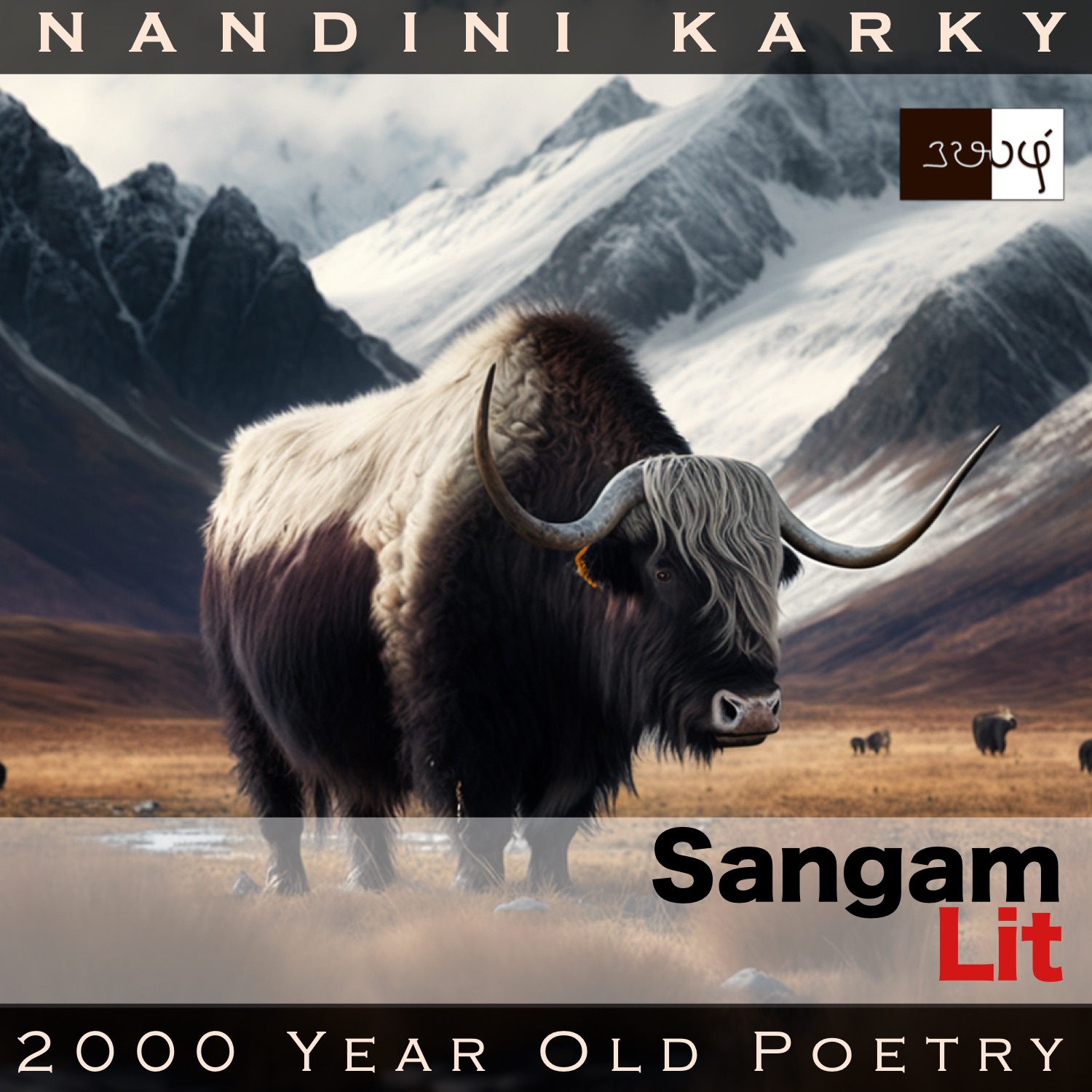Podcast: Play in new window | Download
Subscribe: Apple Podcasts | Spotify | Amazon Music | Android | iHeartRadio | TuneIn | RSS | More
In this episode, we listen to the regret of a poet, as depicted in Sangam Literary work, Puranaanooru 132, penned about the Velir King Aay Andiran by the poet Uraiyoor Enicheri Mudamosiyaar. Set in the category of ‘Paadaan Thinai’ or ‘King’s praise’, the verse touches on the spread of the land to illustrate an emotion.

முன் உள்ளுவோனைப் பின் உள்ளினேனே!
ஆழ்க, என் உள்ளம்! போழ்க, என் நாவே!
பாழ் ஊர்க் கிணற்றின் தூர்க, என் செவியே!
நரந்தை நறும் புல் மேய்ந்த கவரி
குவளைப் பைஞ் சுனை பருகி, அயல
தகரத் தண் நிழல் பிணையொடு வதியும்
வட திசையதுவே வான் தோய் இமயம்,
தென் திசை ஆஅய் குடி இன்றாயின்,
பிறழ்வது மன்னோ, இம் மலர் தலை உலகே.
Another song extolling the greatness of King Aay by this poet. His words can be translated as follows:
“The one, whom I should have thought of before, I thought of later. For this, may my heart drown, may my tongue tear into two and may my ears be covered with moss, akin to a ruined well; If the abode of the yak, which grazes on fragrant lemongrass, drinks fresh waters of springs filled with blue-lilies, and lives with its mate in the cool shade of the crape jasmine tree nearby – the sky-soaring Himalayas were not in the north, and if the land of Aay was not in the south, this wide world would be upside down!”
Let’s delve into the words of this verse. The poet starts by relating how he has done something he feels bad about now. When we enquire what that might be, he says with sorrow about how he has praised others before he praised King Aay. For this self-proclaimed mistake, the poet curses his heart, tongue and ears to be doomed. From within, he switches to the world outside and travels far to the north of current day India, the Himalayas, and brings this land before our eyes by talking about a yak feeding on lemon grass growing there in the grasslands on high, and drinking from the sweet waters of the springs therein. He mentions how this yak lives in the shade of a crape jasmine tree, native to these parts, along with its mate. He declares if this Himalayan range was not in the north and if the great country of Aay was not in the south, the whole world would be considered topsy-turvy. He implies that just like how these two places should remain where they are, he should also have sung about Aay before he sang the praise of other kings!
Yet again, I’m impressed by these poets, who lived in the southern regions of this subcontinent, seeing their knowledge about the land, the kind of animals and plants that lived there in the north, at a distance of more than 3000 km from their homeland. Even those who live in this modern age would find it difficult to tell for sure, which animals and plants are prominently found even in a neighbouring state. Next, is the interesting way the poet talks about the permanence of places and their position in the ancient concept of land. His loyalty and utter devotion to this king is revealed in his words of sorrow. But isn’t a little too much to wish so much harm upon oneself for what seems so harmless from the eyes of the present? – After all, he’s singing about one king instead of another. But different times, different priorities!




Share your thoughts...